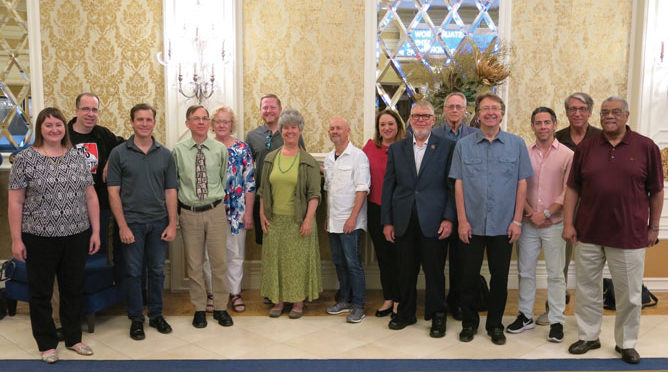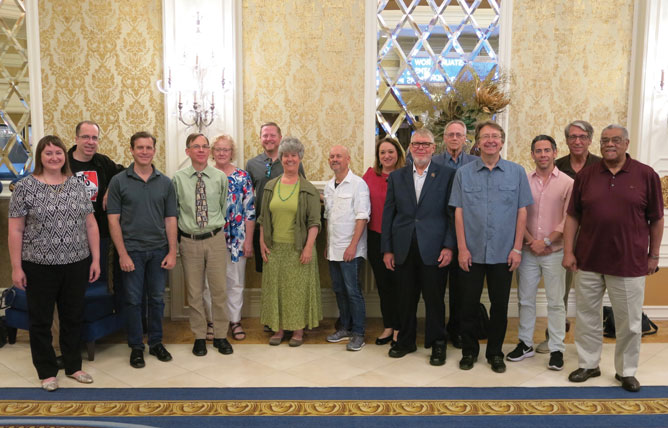
by Marc Sazer, Recording Musicians Association President and Member of Local 47 (Los Angeles, CA) and Local 802 (New York City)
Pension Legislative Activism
We are very proud of the Recording Musicians Association’s role in pulling together a working group to help save our pension fund. With AFM President Hair’s support, many groups—ICSOM, RMA, ROPA, TMA, AFM Legislative Office (Alfonso Pollard and Sandra Grier), AFM Organizing Department (Michael Manley and Alex Tindal Wiesendanger) and AFM Communications Department (Antoinette Follett)—all worked together on the intense campaign.
Meredith Snow (ICSOM chair), Mike Smith (ROPA president), Tony D’Amico (TMA president), and I committed ourselves to activating rank-and-file musicians. The American Rescue Act has benefited musicians in a number of ways: allocating financial support to venues, making PPP loans available to unions, extending unemployment benefits, providing COBRA subsidies, and more. But creating a pathway to survival for our pension fund was a particularly tremendous accomplishment. Hundreds of AFM musicians generated thousands of targeted phone calls—and we won!
Touring
RMA helped form a joint RMA-TMA committee on touring issues. Prepandemic, touring artists and musical productions provided a great deal of employment, yet rarely under union contracts. The industry is multi-faceted. There are superstar artists with groups of different sizes, productions that mix traveling with pick-up musicians in their orchestras, artists who travel with regular bands, and artists with side musicians who play regular weekend gigs from a home base.
The first goal of our committee is research. We know that this is a big conversation. Please feel free to contact me, if you have thoughts or questions about this project. We appreciate the participation of AFM Organizing & Education Director Michael Manley and Touring, Theatre, Booking Division Director Tino Gagliardi.
Film/TV/Streaming/Research
RMA is now preparing for film/TV negotiations by doing widespread research on TV contract compliance. In a survey of TV production by our signatory companies, you might be surprised to see how many projects out there could have and should have been under AFM contracts, but weren’t! Musicians should have and could have gotten standard wages, protections on the job, residuals and new use payments, and health and pension benefits, but they didn’t. In virtually every case, the actors, writers, directors, carpenters, costumers, and drivers all worked under union contracts. Only the musicians were denied.
Similar to the touring issues, research is central. We are identifying sources of information and cross-checking corporate filings, copyright office records, trade information, and more to verify and expose. RMA has formed a small research committee focused on this project.
Our goal is to share our methods and grow a cadre of AFM musician-researchers who are able to step in and support campaigns, whenever and wherever needed. If you are interested in participating, or have thoughts or suggestions, please feel free to contact me at marcsazer@gmail.com.
We’re all in this together.










